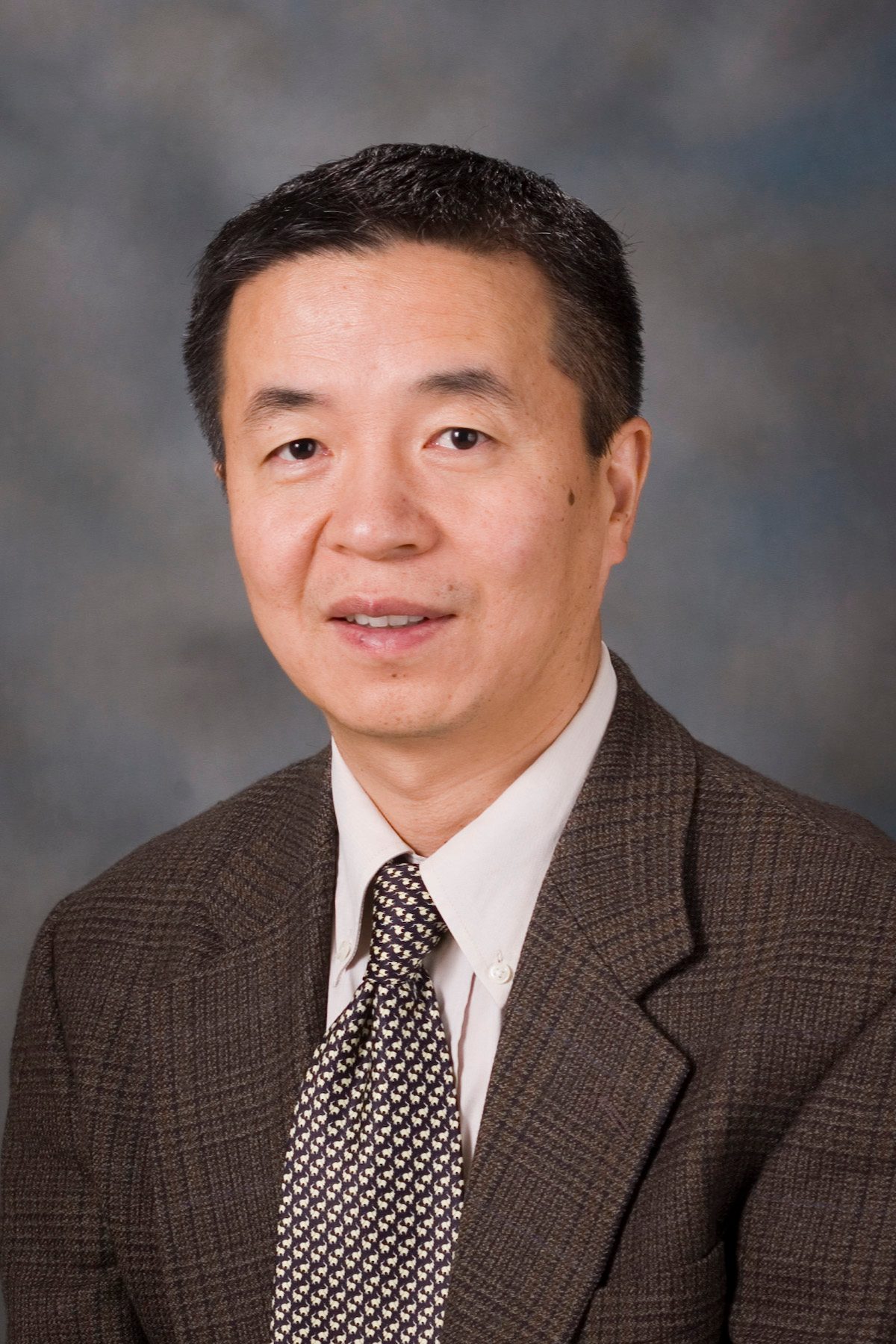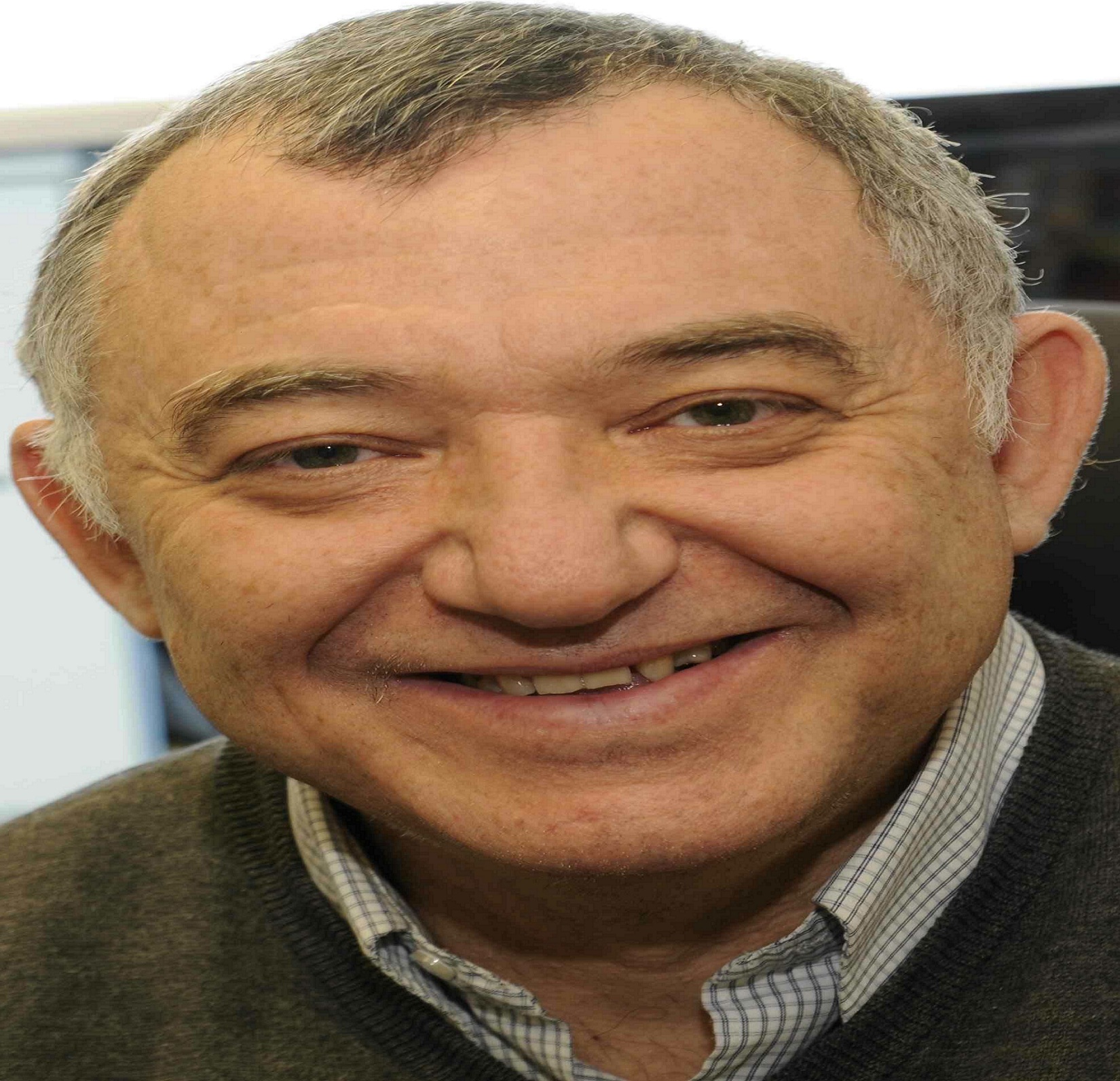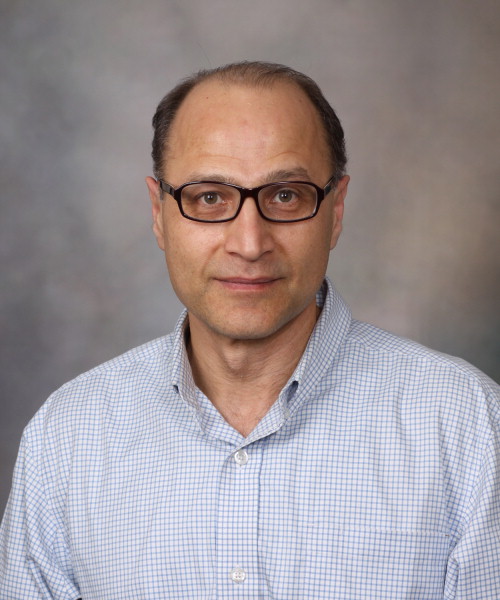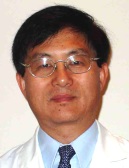Theme: Termination of GI Cancer by Novel and Innovative Technologies
Renowned Speakers
GI Cancer 2018
Conference Series LLC Ltdwelcomes global cancer experts to participate at the "International Conference on Gastrointestinal Cancer and Therapeutics" during October 29 and 30,2018 at San Francisco,USA.
This ‘GI Cancer 2018’ conference will ensure the cancer research all over the world, that would help the researchers to bring a complete solution for cancer.
Details of GI Cancer 2018, USA:
| Conference Name | Place | Date |
|---|---|---|
| GI Cancer 2018 | San Francisco, California, USA | Oct 29-30, 2018 |
Why to attend ?
Conference Series LLCLtd Organizes 1000+ Global Events every year across USA, Europe Asia with support from 1000 more scientific societies and Publishes 700+ Open access journals which contains over 50000 eminent personalities, reputed scientists as editorial board members. To know more about theconference series llc ltdvisit:http://conferenceseries.com/.
With experts from all over the world knowing aboutthe research work and status of cancer treatment 'GI Cancer and Therapeutics 2018' will be your best opportunity to terminate Cancer. Largest assemblage of people from theCancercommunity. World-renowned speakers, the most recent techniques, developments, and the newest updates inCancerare hallmarks of this conference.
GI Cancer:
A tumor starts when normal cells undergo abnormal growth out of control. A cancerous tumor is malignant and can grow and spread to other parts of the body. A tumor can origin in any part of the GI tract. There are different types of GI tumors that includes gastrointestinal stromal tumor (GIST).GISTs are different from more common types of GI tumors because of the type of tissue in which they start. GISTs belong to a group of cancers called soft-tissue sarcomas. Soft-tissue sarcomas develops into tissues that support and connect the body. The sarcoma cells are resembling the cells that are holding the body with the fat cells, nerves , muscles, tendons, joints, lymph vessels , and blood vessels.
Target audience:
· Medical oncologists
· Molecular biologist
· Doctors
· Biological pathologists
· Genetic scientists
· Faculties
· Students
· Cancer Motivational Speakers
· Cancer Challengers
· Business Entrepreneurs
· Medical Devices Companies
· Data Management Companies
Track 1: Gastrointestinal Cancer
Gastro-Intestinal (GI) cancer is the group of cancers that affect the digestive system. This includes cancers of the esophagus, gallbladder, liver, pancreas, stomach, small intestine, bowel (large intestine or colon and rectum), and anus. GI cancer is the most common form of cancer. Cancerous tumors are malignant, which can spread into nearby tissues. In addition these tumors grow into some cancer cells can break off and travel to distant places in the body through the blood or the lymph system and form new tumors. Signs and manifestations of gastrointestinal growth incorporates sickness, spewing, visit indigestion, loss of hunger, early, bleeding stools, jaundice, excessive weariness, Weight misfortune not related with changes in eat less, augmented liver, stomach torment.
GI cancer cell analysis
GI cancer Epigenetics
GI Cancer Signs & Symptoms
GI Cancer types
GI Cancer Treatment & diagnosis
Risk factors
Survival rates
Gastrointestinal Carcinoid tumor
Track 2: Colorectal Cancer
Colorectal cancer starts in either the colon or the rectum. Colon cancer and cancer of the rectum can begin as a small polyp, detectable through regular cancer screening, such as colonoscopy. Colon cancer symptoms include a change in bowel habits like bleeding or blood in stools, but often there are no symptoms. With early detection effective treatment is possible. Some people are at higher risk because of genetic disorders such as Lynch syndrome.
What causes colorectal cancer?
Health tools / Health test
Sigmoidoscopy
Barium Enema
Colon Cancer and Genetic Testing
Track 3: Pancreatic Cancer
Pancreatic cancer is a malignant cells in the tissues of the pancreas. Pancreatic cancer begins when abnormal cells in the pancreas grow out of control. The majority starts in the exocrine cells. Pancreas secretes enzymes that aid digestion and hormones that help regulate the metabolism of sugars. Pancreatic neuroendocrine tumors (pancreatic NETs or PNETs) account for less than 5% of all pancreatic tumors. No signs and symptoms may appear until pancreatic cancer is quite advanced and complete surgical removal is not possible.
Pancreatic neuroendocrine tumors
Pancreatic cancer treatment
Pancreatic cancer markers
Pancreatic cancer prognosis
Track 4: Liver Cancer
Liver cancer is the abnormal growth of liver cells. Cancer origin in the hepatocytes, the main type of liver cell. Other liver cell types infrequently can become cancerous but the most common liver cancer is hepatocellular cancer. Hepatocellular carcinoma is the most general form of liver cancer in adults. The top leading cause of liver cancer is cirrhosis due to either hepatitis B, hepatitis C or alcohol.
Liver cancer Stages
Image testing for liver cancer
Biopsy of liver cancer
Prevention of liver cancer
cirrhosis cause liver cancer
Aflatoxins
Diabetes causing liver cancer
Obesity causing liver cancer
Track 5: Esophageal Cancer
Esophageal cancer occurs in the esophagus. A long hollow muscular tube runs from throat to stomach which moves food and liquids from the throat to the stomach. Cancer origin at the inner layer of the esophagus and spread to the other layers of the esophagus and also to other parts of the body (metastasis). The general types of esophageal cancer are squamous cell carcinoma and adenocarcinoma. Esophageal cancer is often diagnosed at later stage because there are no early signs or symptoms.
Deduction of esophageal cancer
Esophageal Cancer treatment
Esophageal Cancer surgery
Thyroid cancer
Track 6: Stomach Cancer
Stomach cancer begins form the inner lining of the stomach. They can grow into a tumor also which is called as gastric cancer. Mostly gastric cancers originate in the mucosa of the stomach, and disease usually grows over many years. Early symptom includes heartburn, upper abdominal pain, nausea and loss of appetite. Later signs includes weight loss, yellowing of the skin and whites of the eyes, vomiting, difficulty swallowing, and blood in the stool among others. Stomach cancer may spread from the stomach to other parts of the body such as liver, lungs, bones, lining of the abdomen and lymph nodes. A gastrointestinal stromal tumor (GISTs) is a disease in which abnormal cells form the tissues of the gastrointestinal tract. Gastrointestinal stromal tumors are the common mesenchymal neoplasms of the gastrointestinal tract. GISTs arise in the smooth muscle pacemaker interstitial cell of Cajal, which is more common in the stomach and small intestine but may be found anywhere in or near the GI tract also.
Stomach Cancer Symptoms
Stomach Cancer Treatment
Pain during stomach Cancer
Gastrointestinal Stromal Tumors
Adenocarcinoma
Carcinoid tumor
squamous cell carcinoma
leiomyosarcoma
Track 7: Gall Bladder Cancer
Gallbladder cancer starts in the gallbladder or bile ducts. Gallbladder cancer is a rare cancer that is to be related to gallstones building up. It lead to calcification of the gallbladder condition known as porcelain gallbladder which is very rare. Some studies find that people with porcelain gallbladder are having a high risk of developing gallbladder cancer.
Gall Bladder Cancer diagnosis
Gall Bladder Cancer causes
Porcelain gallbladder
salmonella typhi and gallbladder cancer
Non papillary adenocarcinoma
Papillary adenocarcinoma
Mucinous adenocarcinoma
Squamous cell cancer
Adenosquamous cancer
Sarcoma
Neuroendocrine tumor
Track 8: Anal cancer
Anal cancer is a malignant cells formed in the tissues of the anus. Infected with the human papillomavirus (HPV) will increases the risk of developing anal cancer. Signs & symptoms of anal cancer includes bleeding from the anus or rectum or a lump near the anus. Rarely itchy bottom can be a symptom of a gastrointestinal cancer, anal cancer or bowel cancer. Many cases of itchy bottom are not caused by cancer. Possible symptoms of anal cancer is rectal bleeding. Tests that can examine the rectum and anus are used to find and diagnose anal cancer.
Anal cancer stages
Anal cancer symptoms
Anal cancer prognosis
Anal cancer Therapies
Digital rectal examination (DRE)
Anoscopy
Proctoscopy
Endo-anal or endorectal ultrasound
Adenocarcinoma
Track 9: Gastrointestinal Cancer: Diagnosis
A definitive way of diagnosis of most types of gastrointestinal cancers biopsy is preferred. If biopsy is not possible, the doctor may suggest other tests that may help to make diagnosis. Imaging tests may be used to find whether cancer has spread. Early diagnosis of gastric cancer is very difficult because mostly patients are asymptomatic during the early stages. Esophagogastroduodenoscopy is the preferred diagnostic method for evaluation of patients with whom stomach cancer is suspected. Radiographic study provides preliminary information that help the physician to determine if a gastric lesion is present and whether the lesion has benign or malignant features.
Blood tests
Scaning
Radiographic studies
Track 10: Advanced Gastrointestinal Cancer Therapeutics
The advancement in cancer treatment which is leading to terminate cancer forever. This will include Radiation, Surgery, Chemotherapy in advance such as using nanomaterial and advanced automated techniques.
Track 11: Gastrointestinal Cancer Chemotherapy
Cancer treatments such as chemotherapy, radiation and surgery are another potential source of cancer pain. The treatment of cancer by using chemical substances, especially treatment by cytotoxic and other drugs.
Track 12: Gastrointestinal Cancer Surgery
Cancer treatments including chemotherapy, radiation and surgery are the potential source of cancer pain. Surgery will be painful, and it may take some time to recover.
Track 13: Gastrointestinal Cancer Radiation Therapy
Radiation therapy for cancer uses high-energy radiation to shrink tumors and kill cancer cells used for cancer treatment. Radiation may leave behind burning sensation or painful scars as well.
Track 14: Gastrointestinal Cancer Immunotherapy
The well known application of cancer treatments is cancer immunotherapy, which utilizes the immune system as a treatment for cancer.
Track 15: Gastrointestinal Cancer: Treatment & Management
Treatment of cancer and management depends on several factors which includes the types and stages of cancer, possible side effects, patient’s preferences and overall health issues. The most general treatment in different types of gastrointestinal cancers is surgery and radiation therapy. The treatment for esophageal cancer is by endoscopic ultrasonography may be considered for endoscopic therapy.
New therapeutic strategies with the established treatment techniques are most important and must needed in gastrointestinal cancer it represents a novel approach to the management of different types of gastrointestinal cancer, so the pathological development of vascular supply is a major step for tumor growth and may affect its prognosis.
Track 16: Gastrointestinal Cancer Clinical Trials
Clinical trials research studies involve people. Through clinical trials, doctors find new and advanced ways to improve the treatments for cancer and quality of life for the people with disease. Researchers do cancer clinical trials to test their new research works to treat cancer.
Track 17: Cancer Vaccine
The main goal of Cancer vaccine is to help and treat cancer or to help keep it away from coming back after treatments. A cancer vaccine either treats existing cancer or prevents the cancer from developing. Vaccines that are able to treat existing cancer are therapeutic cancer vaccines and the others are "autologous" vaccines which is being prepared from samples like blood taken from the patient. They are specific to that patient only. Few researchers claimed that cancerous cells arises routinely are destroyed by the immune system mostly but tumors form when the immune system fails to destroy them.
Track 18: Business Investigators Meet
Ingredient for successful entrepreneurship is self-knowledge. Gastrointestinal Cancer 2018 objective is to bring all existing and budding bio entrepreneurs together to share present and experiences new challenges and innovations in Cancer community. Every year, over a million companies are started in the world with about 5–10 of them known as high technology companies. Changing ideas into business ventures is tricky opportunity-recognition step critical in new venture creation. Even though life scientists are the founders of biotech companies, studies have shown that most successful high tech start-ups are founded by a team of two to three individuals with mixed backgrounds, substantial industry experience and a very clear market and product focus at founding. This two days conference will be a highly interactive forum that will bring experts in areas ranging from Cancer to genomic analysis to novel therapeutic techniques and approaches to terminate cancer. In addition to our outstanding speakers, we will also showcase short talks and poster presentations from submitted abstracts. The speakers will discuss about all the various sub-topics of Gastrointestinal Cancers and Cancer Therapeutics.
Track 19: Cancer Research areas
Bioinformatics in Cancer
Molecular biology in Cancer
Cancer pathology
Cancer Apoptosis
Cancer biology
Cancer signaling pathway
DNA Repair mechanism in Cancer
Market Analysis:
Analysts forecast that the global Gastric Cancer Drugs Warming Devices market to grow at a CAGR of 8% during the period 2016 to 2020.Cancer immunotherapy market should reach $96.5 billion by 2021 from $73.0 billion in 2016 at a compound annual growth rate (CAGR) of 5.7%, from 2016 to 2021.Radiotherapy market is valued at $6.4 billion in 2016. The market should reach $6.8 billion and $9.2 billion in 2017 and 2022, respectively; growing at a compound annual growth rate (CAGR) of 6.4% from 2017 to 2022.Prostate cancer products already reached approximately $47.2 billion in 2016 and it must reach nearly $65.1 billion in 2021, with a compound annual growth rate of (CAGR) of 6.6%.Cancer vaccines was valued at nearly $4.2 billion and $4.0 billion in 2014 and 2015, respectively. This market is declined nearly $3.5 billion in 2016 to $3.4 billion in 2021 at a compound annual growth rate (CAGR) of -0.4% for 2016 to 2021.
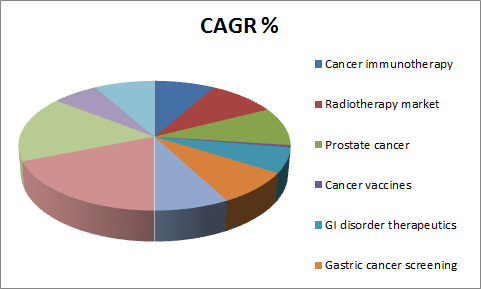
Gastrointestinal disorder therapeutics and diagnostics already reached $49.6 billion in 2015. This market is expected to grow to $51.8 billion in 2016 to $63.8 billion in 2021 at a compound annual growth rate of 4.3% from 2016 to 2021.Gastric cancer diagnostic/screening and treatment market was $235.5 billion in 2014. This market already reached $241.7 billion in 2015. And will reach to $318.3 billion by 2020, with a compound annual growth rate of (CAGR) of 5.7%.Biologic cancer treatment totaled about $51.2 billion in 2014 and is expected to reach $66.4 billion in 2019, registering a compound annual growth rate (CAGR) of 5.4% for the period 2014-2019.Ovarian cancer drug and diagnostic market was valued at $16.1 billion in 2012. This market is predicted to grow to $18.7 billion in the year 2013 and $34.6 billion in the year 2018.A compound annual growth rate (CAGR) is 13.1% between 2013 and 2018.The global market for the prevention and treatment of prostate cancer was valued at $26.1 billion in 2011 and should reach nearly $29.3 billion in 2012. The total market value will reach to $50.3 billion in 2017 after increasing at a five-year compound annual growth rate (CAGR) of 11.4%.
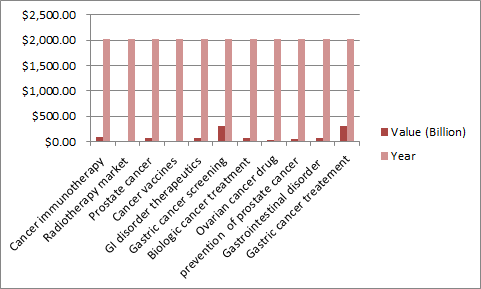
Cancer pharma industry reached $100 billion in annual sales, and could reach $147 billion till 2018. Cancer of pharma industry is probably the most prosperous business in the United States. Other new cancer cases diagnosed and death by cancer reaches 585,720 in the USA. $6 billion of tax-payer funds are cycled through various federal agencies for cancer research, with a projected 39 percent increase to $173 billion by 2020. Pharma industry for cancer is growing very aggressively with many opportunities.
Each year, as many as 3,500 to 4,000 adults in the United States will be diagnosed with a GIST. About 60% of GISTs begin in the stomach, and around 30% develop in the small intestine. The remaining types of GISTs mostly start in the rectum, colon, and esophagus. Most people are diagnosed between the ages of 50 and 80.
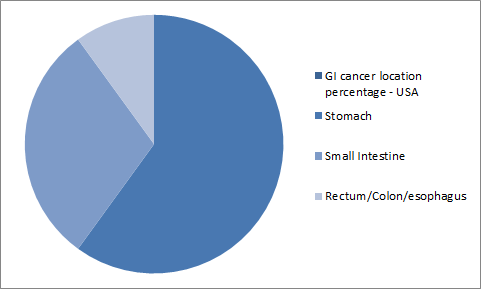
Every year 13,000 men and 8,000 women in the United States are diagnosed gastric cancer. The cancer usually begins in the cells of the inner layers of the stomach and sometimes spread deeply into the stomach wall. Stomach cancer most commonly affects the elderly two-third of people those who are over the age of 65. It can be difficult to diagnose in its early stages, so it is often diagnosed late.
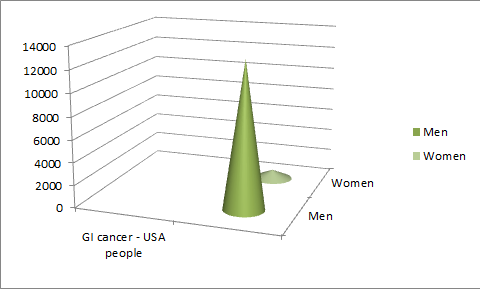
GI Cancer is now the first most commonly diagnosed cancer in which prostate cancer for men is high in Marin County. GI cancer in Marin County is 50% higher than the rest of the San Francisco Bay Area. Death rates from GI cancer in Marin County are 20% higher than the California state average.
List of Cancer Universities and Hospitals in San Francisco – USA:
· University of California San Francisco
· UCSF Helen Diller Family Comprehensive Cancer Center
· UCSF Medical Center
· University of San Francisco
· San Francisco State University
· Sutter Health California Pacific Medical Center
· American Cancer Society
· National Cancer Institute
· American Association for Cancer Research
· Roswell Park Cancer Institute
· Concordia University
· UCSF Benioff Children’s Hospital
· UCSF Bakar Cancer Hospital
List of few Cancer Societies and Communities in USA:
· American Cancer Society
· Gastric Cancer Foundation
· American Association for Cancer Research
· International Society of Gastrointestinal Oncology
· National Cancer Institute
· No Stomach For Cancer
· UNC REX Healthcare
· FindMeCure
· Cancer Community Center
· Center for Disease Control and Prevention
· Houston Methodist Leading Medicine
· Association of Cancer Online Resources
· Dana – Farber Cancer Institute
· Cancer . Net
· United Cancer Support Foundation
List of few Medical Universities in USA:
· Johns-Hopkins-University-School-of-Medicine – Baltimore, Maryland
· UCSF School of Medicine – San Francisco, California
· Wash U School of Medicine – Saint Louis, Missouri
· UC San Diego School of Medicine – La Jolla, California
· Yale School of Medicine – New Haven, Connecticut
· UNC School of Medicine – Chapel Hill, North Carolina
· UT Southwestern Medical School – Dallas, Texas
· Maryland School of Medicine – Baltimore, Maryland
· University of Cincinnati Academic Health Center – Cincinnati, Ohio
· University of Wisconsin School of Medicine – Madison, Wisconsin
· Stony Brook School of Medicine – New York
· Vermont College of Medicine – Burlington, Vermont
· Wayne State School of Medicine – Detroit, Michigan
· Penn State Hershey College of Medicine – Hummelstown, Pennsylvania
· Alabama School of Medicine – Birmingham, Alabama
· UMASS School of Medicine – Worcester, Massachusetts
· Warren Alpert Medical School – Providence, Rhode Island
· Rutgers New Jersey Medical School – Newark, New Jersey
· Oklahoma College of Medicine – Oklahoma City
· Charles R. Drew University of Medicine and Science – Los Angeles, California
List of Cancer hospitals in USA:
University of Texas MD Anderson Cancer Center, Houston
Memorial Sloan Kettering Cancer Center, New York City
Mayo Clinic, Rochester, Minnesota
Dana-Farber/Brigham and Women's Cancer Center, Boston
UCLA Medical Center, Los Angeles
Moffitt Cancer Center and Research Institute, Tampa, Florida
Seattle Cancer Care Alliance/University of Washington Medical Center
Cleveland Clinic
Johns Hopkins Hospital, Baltimore
UCSF Medical Center, San Francisco
Massachusetts General Hospital, Boston
Hospitals of the University of Pennsylvania-Penn Presbyterian, Philadelphia
Stanford Health Care-Stanford Hospital, California
Northwestern Memorial Hospital, Chicago
Barnes-Jewish Hospital/Washington University, St Louis
University of North Carolina Hospitals, Chapel Hill
New York–Presbyterian University Hospital of Columbia and Cornell, New York City
USC Norris Cancer Hospital-Keck Medical Center of USC, Los Angeles
Wake Forest Baptist Medical Center, Winston-Salem, North Carolina
City of Hope, Duarte, California
Conference Highlights
- Gastrointestinal Cancer
- Colorectal Cancer
- Pancreatic Cancer
- Liver Cancer
- Esophageal Cancer
- Stomach Cancer
- Gall Bladder Cancer
- Anal cancer
- Gastrointestinal Cancer: Diagnosis
- Advanced Gastrointestinal Cancer Therapeutics
- Gastrointestinal Cancer Chemotherapy
- Gastrointestinal Cancer Surgery
- Gastrointestinal Cancer Radiation Therapy
- Gastrointestinal Cancer Immunotherapy
- Gastrointestinal Cancer: Treatment & Management
- Gastrointestinal Cancer Clinical Trials
- Cancer Vaccine
- Business Investigators Meet
- Cancer Research areas
- GI Cancer during Pregnancy
To share your views and research, please click here to register for the Conference.
To Collaborate Scientific Professionals around the World
| Conference Date | October 29-30, 2018 | ||
| Sponsors & Exhibitors |
|
||
| Speaker Opportunity Closed | Day 1 | Day 2 | |
| Poster Opportunity Closed | Click Here to View | ||
Useful Links
Special Issues
All accepted abstracts will be published in respective Our International Journals.
Abstracts will be provided with Digital Object Identifier by












